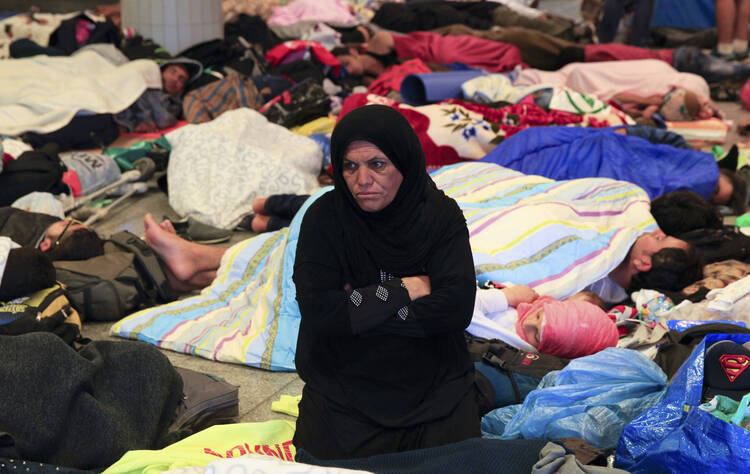Pope Francis has made a passionate and urgent appeal to the International Community to find ways to resolve the conflicts in Syria, Iraq, Jerusalem and the West Bank of the Jordan where there is “an escalation of violence” that is bringing destruction and great sufferings to the peoples living there.
He called on the International Community, by which he means the United Nations in the first place where, on Sept. 25, in his address to the General Assembly in New York he raised this whole issue as a pressing matter that required immediate attention.
This morning, he urgently appealed to the International Community “(to) find a way to effectively assist the interested parties.” He called on it “to broaden its horizons beyond the immediate interests and use the instruments of international law and diplomacy to resolve the ongoing conflicts.”
He issued his appeal on October 9, together with the synod of bishops that is meeting in Rome, where these concerns have been highlighted and discussed in regard to the destruction such conflicts are bringing to innumerable families in the region, and forcing countless thousands of people to immigrate to neighboring countries, to Europe and, to a lesser degree, to the United States, so as to escape death or persecution.
The conflict and great violence has been going on in Syria and Iraq for some years now, but it is escalating there and also now in Jerusalem and the West Bank in a way that could expand rapidly.
Francis spoke before the working session of the synod on the family began, on Friday morning, Oct.9. He called on the 318 participants “to pray for reconciliation and peace in the Middle East” and told them he is “stricken with pain” and is “following with deep concern what is happening in Syria, Iraq, Jerusalem and in the West Bank, where we are assisting at an escalation of violence that is involving innocent civilians, and feeding a humanitarian crisis of enormous proportions.”
“War brings destruction and multiple sufferings to the populations. Hope and Progress come only from the choices of peace,” he stated.
He invited the synod participants “to join together” with him “in an intense and trustful prayed to the Lord, a prayer that intends to be, at the same time, an expression of closeness to (our) brother Patriarchs and Bishops here present, that come from those regions.”
He also drew attention to the ongoing conflicts in some African countries, which have also been discussed in the synod. He invited the synod participants to join him in praying for peace there too, and said: “Let us pray too for those zones of the African continent that are living through similar situations of conflict.” He will no doubt repeat this plea when he visits Kenya, Uganda and the Central African Republic in the last week of November.








